A century on, a bitter farmers’ strike still resonates in song
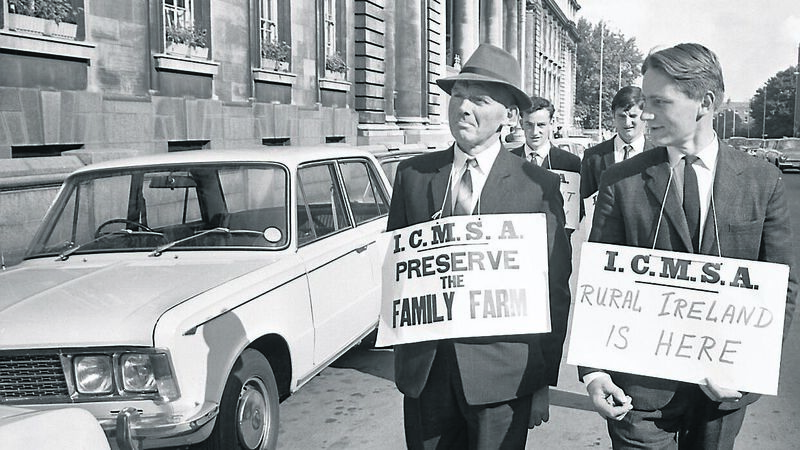
I know the bould Henry is supposed to have dismissed history and its study as ‘bunk’, but of course sayings are often taken out of context.
In fairness to Ford, he held on to millions of documents and got a museum built for them. I still haven’t completed my ‘personal papers’ archiving, which I started in 2020 during the first Covid lockdown. I’m about 70% finished with another 20 or so boxes to go.
Any night I get around to the task, I get ‘waylaid’ because when I open some envelope or folder, I find bits and pieces I may have stored in the 1970s, many of which I’d forgotten all about! I read and re-read them as if for the first time and the best laid plans of mice and me get shredded!
Now, my ‘papers’ aren’t’ as interesting as those of any famous luminary, but still I’ve found some gems.
A while back I was doing some research on the Land Wars in Ireland - primarily because my great-grandfather had been evicted from the ancestral acres in Castlelyons.
Founded in 1898 by William O’Brien MP, the UIL wanted to properly commemorate the 1798 Rising of a century earlier, as well as hoping to get politics ‘going’ in Ireland after the very divisive Parnellite Split. The League also wanted to get laws passed to enable ordinary Irish tenant farmers to secure their own farms - away from the clutches of the landlord class.
Trying to obtain more information, I checked the ‘online’ Records Index in the Cork City and County Archive in Great William O Brien Street, Blackpool. I was delighted to see that amongst the documents stored there was a small file on the Bartlemy Branch of the UIL.
The Index just gave a summary, which of course merited further investigation. So the next time I was in Cork, maybe a month or so later, I made my way to Blackpool to the Seamus Murphy Building where the Archives are situated. I was a bit excited in anticipation of perusing the file. So, when I got it and opened the folder I got some ‘land’!
In the early 1970s, the members of Bartlemy Macra na Feirme Branch undertook several local projects, including one on Parish History. A local farmer, pilot, historian, folklorist and genealogist, Tom Scanlan, gave us great help. I often think of Tom as a man whose life revolved around myth, mysticism and mystery.
I’m not certain of the chronology of events, but it must have been Tom got or was given or always had those letters from over a century ago, and he gave them to me and told me stories about the UIL in Bartlemy in the early 1900s. I wrote down all he told me.
Some time later, Tom took a lot of his own notes, scribblings and diaries up to the then Cork City Archives - at that time they were situated in an old church in the city. He must have asked me to send up what I had.
Anne Barry, from Midleton - a cousin of Tom’s and of mine - was then working as the Archivist. When the custom-built Blackpool Archive Centre was opened all the accumulated material was brought there.
Just the other day, I met a man from Kerry that I know reasonably well through common sylvan interest. He’d been reading through the mammoth 962-page Atlas Of The Irish Revolution published by UCC a few year back. In passing, he had seen a reference to the Bartlemy Farm Labourers’ Strike of the 1920s and was fascinated by the episode.
Though the strike happened over a century ago, it still has resonances around here.
I told John what I knew of the bitterness and rancour which was visited on a small rural parish. I recited a few verses of a ‘song’ that was composed around that time.
Depending on which ‘side’ you came from, the song could be described as scurrilous or hilarious. The author, who shall be nameless, excoriated, insulted and belittled one of the combative factions during the strike - the local farmers.
In actual fact, over a period of 40 years, I had endeavoured to get the ‘complete’ version of the ‘come-all-ye’ but in vain. Over the decades it has been added to, subtracted from, and rewritten several times. It was never printed or published in full or in part and I have no intention of ever doing so!
My grandfather Batt Arnold was farming here in the 1920s - was he involved? Did farm labourers on this farm go on strike? Did my grandfather refuse to pay a bonus to the labourers for working an extra half day on Saturday and an extra full day on Sunday in order to ‘save’ the harvest in woeful weather? Was he mentioned mockingly in ‘the song’?
All my sources said ‘Oh no, there was never anything written about the Arnolds’, but sure that might only be said to pacify me and not upset me!
At this remove, it’s unlikely I’ll get any new ‘intelligence’ but, as John said to me last week, it’s vital to just write down every single scrap of information I can gather on those troubled times.
There is no-one left alive now who can recall those days of boycott, bitterness, reprisal, near starvation, and rival vicious accusations and counter-accusations. Some say leave sleeping dogs lie and don’t poke the bear - in other words, just forget all that stuff from long ago.
The aforementioned Henry Ford said: “Say, what do I care about Napoleon? What do we care about what they did 500 or 1,000 years ago? It means nothing to me. History is more or less bunk. It’s tradition. We don’t want tradition. We want to live in the present and the only history that is worth a tinker’s dam is the history we make today.”
Sorry, Henry, I want tradition and history too - not to live in it, but to learn from it, so that’s why I keep asking questions and writing down the answers - truth, lies, tall tales and small seemingly insignificant stories.
Everyone’s story is important, and the story of every place, little and large, should never be forgotten.
Patrick Kavanagh
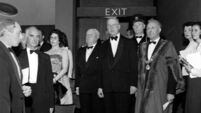
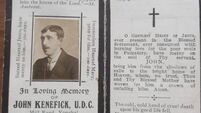
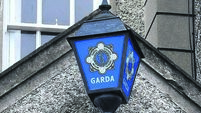

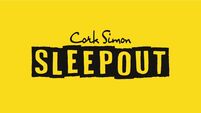


 App?
App?




